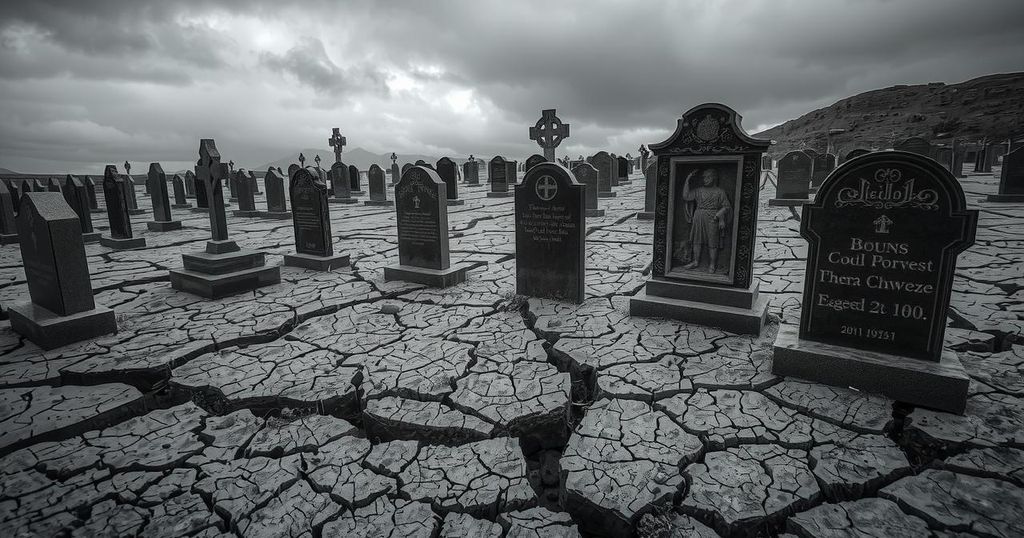Sudan Civil War: Gravedigger in Khartoum Faces Unprecedented Challenges
The Sudanese army has reclaimed the presidential palace in Khartoum from the RSF amid ongoing civil war, which has led to immense civilian suffering. The conflict has caused significant death, destruction, and displacement, with gravediggers like Abidin Durma working tirelessly to manage the overwhelming casualties. Despite military advances, the humanitarian crisis continues to deepen, affecting the daily lives of affected families and communities.
The ongoing civil war in Sudan has intensified, with the Sudanese army reclaiming the presidential palace in Khartoum from the Rapid Support Forces (RSF). This significant military victory comes two years after the army was expelled from the city. Fighting in Khartoum, the epicenter of the conflict, has led to immense suffering among civilians, leading to severe human rights violations and famine across various regions of the country.
Months of strategic recapturing by the Sudanese armed forces have seen significant territorial advances, particularly in northern and eastern districts and parts of central Khartoum. A recent offensive commenced just a week ago, commencing with high morale among troops as they prepared for intensive combat operations. Reports indicate that the army successfully disrupted an RSF convoy attempting to flee the palace, illustrating the high stakes of this military engagement.
Abidin Durma, renowned as the gravedigger of Omdurman, reflects the profound human cost of the conflict. His family’s legacy includes managing one of the oldest cemeteries in the region. Observing the cemetery’s expansion due to ongoing conflict, he reports burying dozens of bodies daily while facing overwhelming operational challenges brought on by warfare.
With a grim efficiency, Mr. Durma notes, “We bury them right away, because there is no [reliable] fridge.” His statement underlines the urgency and tragedy experienced daily, with lives snuffed out as families suffer the consequences of the ongoing shelling. Reports of civilian casualties highlight systematic issues affecting the population during these tumultuous times.
The continued fighting affects communities profoundly, as illustrated through personal narratives shared by individuals such as Abazar Abdel Habib. Following a tragic artillery strike claiming family members, he emphasizes the need to preserve memories for the future generation, stating, “We will tell them exactly what happened, about the shelling and the war.”
Women from local communities echo similar sentiments about the hardships they endure as a result of constant danger. Daily activities have transformed into survival tactics, with the threat of violence reprogramming their sense of safety. Amidst these challenging circumstances, the harrowing tales of loss and resilience paint a picture of an enduring spirit striving for hope in the face of despair.
Should the Sudanese army achieve comprehensive control of Khartoum, it may bring an end to the immediate danger from shelling in the area, yet the conflict will persist in other parts of Sudan, leaving lasting scars on the nation. In summary, the war has deeply rooted implications for Sudanese society, altering lives irrevocably while continuing to threaten stability for future generations.
The situation in Sudan remains critical as the civil war persists, causing widespread devastation and suffering among civilians. The recent military activities by the Sudanese army, aimed at reclaiming Khartoum, highlight both strategic advancements and the ongoing humanitarian crisis. Individuals like Abidin Durma illustrate the profound cost of the conflict, which has led to significant loss of life and disruption of community life. Despite potential military victories, the broader consequences of war will continue to affect the nation for years to come, emphasizing the urgent need for resolution and healing in Sudan.
Original Source: www.bbc.co.uk




Post Comment